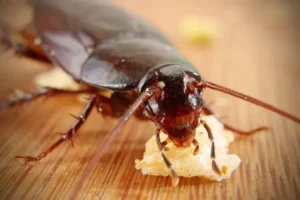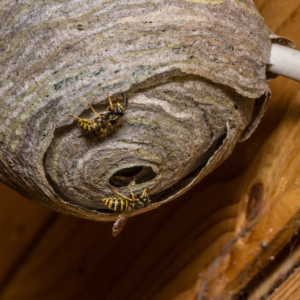A female rat typically has six litters every year, each containing between 5 – 12 rat pups. Rats attain sexual maturity after nine weeks, which means that in one year, a population can grow from two rats to roughly 1,250, with the potential for population explosions.
What this means is that the first moment you suspect rodents in your home, your first response should be to call in a specialist. Rodent control in Wellington and its hilly surrounds is especially important to complement the community initiatives already in place in some Wellington suburbs. Rats cause extensive property damage; some of it can be incredibly time-consuming and expensive to repair. Additionally, they pose a severe health risk to your family and pets.
Protecting Your Investment
If you live in a Wellington suburb on the town belt, such as Wadestown or Kaiwharawhara, you will probably already know that ongoing rodent control is particularly important. Living in these beautiful and dense bush-clad areas makes your home attractive to rodents seeking refuge from the cold and wet Wellington winter.
Destroying Home Structures
Rats are superheroes (villains) in the rodent world ‒ notorious for chewing through walls, floors, doors and even doors. Did you know that rats’ teeth rank about 5.5 on the Mohs Scale? This means their teeth are tougher than iron and copper, so nothing in your home is safe from their chewing habits.
Once nestled into your nice warm home, your newly installed rat family chew their way through freshly installed dishwasher pipes, wiring, roof ducting and general building infrastructure just to maintain teeth strength and cleanliness. It’s expensive enough paying for our own dental care without having to provide it for a family of Wellington rats.
From Your Pantry To Theirs
Rodents can eradicate your food storage in no time. They have very diverse diets, and once they get into your pantry, the results can be incredibly costly. They don’t only eat when they’re hungry; they collect food for storage as well. The thought of rodents in your pantry followed by the evidence of their visit is, for some, worse than the cost of replacing any food items.
And where are they taking your food to? Their pantry in their nests! They gather materials from inside and outside and make nests. They love insulation; they will tunnel into the material, making up your home’s insulation, often rendering it less effective. Mice do not mind living close to humans and often prefer the motor compartments of fridges for their nesting spaces. Rats prefer to stay hidden and often nest within floor spaces, underneath baths or behind cupboards.
Nevermind The Smell!
With nesting comes rat business. One of the most distinct odours you can think of is the smell of rodent droppings and urine; you can smell it as soon as you walk through a door. The smell will permeate through linen, carpets and even timbers.
And, of course, rodents are responsible for some of the deadliest plagues in history! They are known carriers of bacteria that cause diseases such as HPS, Leptospirosis, lymphocytic choriomeningitis and typhus.
Control control control
If your first line of defence is to call a pest control company, your second line should always be taking any maintenance advice from your pest professional and denying rat access into your home in the first place, or at the very least not making it easy for them. There will be simple things you can do and not so simple things. Again, if you live in Wellington, chances are you’re on a hill. It’s not so simple as cutting down that branch on that tree in that inaccessible area of your property which provides easy access for rats into your ceiling. Armed with the knowledge that they may still enter, your next option is to control them from within.
So, don’t lose any more sleep on this! Control what you can by engaging a pest professional. You may even want to join in any community initiatives around pest control in Wellington and join the good fight for the wider community.
Protecting Our Eco-Systems ‒ Our Pledge Towards A Predator Free 2050
Rodents are considered invasive not only in residential or commercial environments; they also bring an imbalance in our eco-systems. We need to adopt a proactive stance on pest control because New Zealand is home to numerous rare birds, frogs, reptiles and plant species that locals have come to love and cherish. Many of our native species are unique and distinctive to New Zealand. But this leaves them vulnerable to imported predators like rats, stoats and possums.
Our social responsibility towards protecting our precious eco-systems is most tangible in our country’s push to achieve a Predator Free 2050. This is recognised as the world’s most extensive mammal eradication programme and comprises NGOs, Iwi, community groups, individual volunteers and pest management specialists such as ourselves, The Pest Man.Based in Kapiti, The Pest Man is perfectly positioned for pest management and rodent control in Wellington, Porirua, Kapiti, Palmerston North and surrounding areas. We can help you handle any infestation at any stage, from first signs to severe. Contact us.



